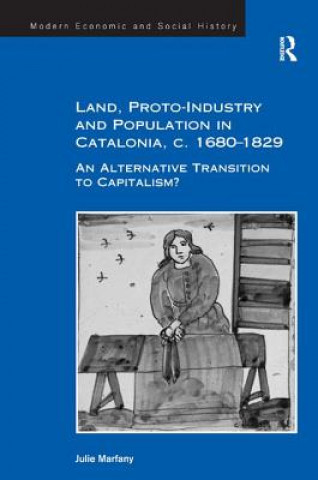
Kód: 04783326
Land, Proto-Industry and Population in Catalonia, c. 1680-1829
Autor Julie Marfany
This monograph makes a fresh contribution to a longstanding but far from exhausted debate concerning the transition to capitalism in Europe. The work investigates key aspects of this transformation: the changes on the land, the or ... celý popis
- Jazyk:
 Angličtina
Angličtina - Väzba: Pevná
- Počet strán: 230
Nakladateľ: Taylor & Francis Ltd, 2012
- Viac informácií o knihe

Mohlo by sa vám tiež páčiť
-
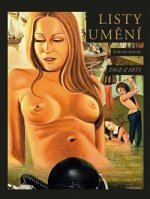
Listy umění 1/2017
0 € -100 %
Darčekový poukaz: Radosť zaručená
- Darujte poukaz v ľubovoľnej hodnote, a my sa postaráme o zvyšok.
- Poukaz sa vzťahuje na všetky produkty v našej ponuke.
- Elektronický poukaz si vytlačíte z e-mailu a môžete ho ihneď darovať.
- Platnosť poukazu je 12 mesiacov od dátumu vystavenia.
Viac informácií o knihe Land, Proto-Industry and Population in Catalonia, c. 1680-1829
Nákupom získate 556 bodov
 Anotácia knihy
Anotácia knihy
This monograph makes a fresh contribution to a longstanding but far from exhausted debate concerning the transition to capitalism in Europe. The work investigates key aspects of this transformation: the changes on the land, the origins of the industrial revolution, the modern rise of population and the growth of markets. It does so from a new perspective, however, by focusing on an area of southern Europe, Catalonia. Catalonia's interest as an area for study lies in its precocity within a southern European context, as one of the few regions on the European periphery to industrialise in comparable ways and at the same time as areas of northern Europe. Population growth was similarly rapid. The study engages critically with several important debates in economic and social history, such as the transition to agrarian capitalism, whether or not sharecropping should be viewed as a backwards form of agricultural production, theories of proto-industrialisation and theories of population change. It also questions claims that the nuclear family of north-western Europe was a superior model for industralisation than the more extended family structures prevalent in southern Europe. Not only could the extended family be as dynamic as the nuclear family when required but, more importantly, attention needs to be paid to other institutions and factors that may have conditioned family forms and decision-making processes. The approach taken by this work is a micro-study of one community, Igualada, an important proto-industrial centre but also situated within the viticultural region. It grew rapidly over the eighteenth century from around 1,700 inhabitants in 1717 to 4,900 in 1787 and around 7,700 by 1830. Only at the micro-level is it feasible for an individual study to reconstruct networks of relationships and patterns of decision-making at the household level. At the core of the book, therefore, is a family reconstitution of 8,700 families, supplemented by a wide body of additional sources, such as landholding contracts, tax records, manorial surveys, inventories, marriage contracts and letters.
 Parametre knihy
Parametre knihy
Zaradenie knihy Knihy po anglicky Humanities History History: specific events & topics
221.01 €
- Celý názov: Land, Proto-Industry and Population in Catalonia, c. 1680-1829
- Autor: Julie Marfany
- Jazyk:
 Angličtina
Angličtina - Väzba: Pevná
- Počet strán: 230
- EAN: 9781409444657
- ISBN: 1409444651
- ID: 04783326
- Nakladateľ: Taylor & Francis Ltd
- Hmotnosť: 566 g
- Rozmery: 234 × 156 × 14 mm
- Dátum vydania: 10. August 2012
Obľúbené z iného súdka
-
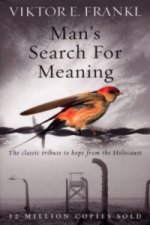
Man's Search for Meaning
7.03 € -6 % -

Women, Race & Class
10.25 € -19 % -

Pianist
12.56 € -12 % -

Out Of Place
12.06 € -23 % -
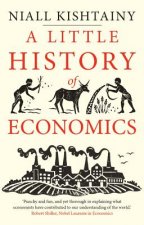
Little History of Economics
14.87 € -8 % -
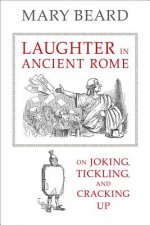
Laughter in Ancient Rome
19.90 € -11 % -
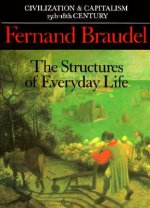
Civilization and Capitalism, 15th-18th Century
67.26 € -
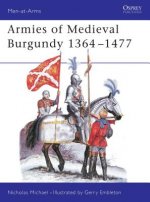
Armies of Medieval Burgundy 1364-1477
15.68 € -14 % -

Night
9.95 € -22 % -
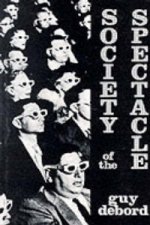
Society of the Spectacle
11.55 € -
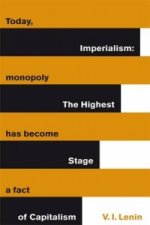
Imperialism: The Highest Stage of Capitalism
7.73 € -23 % -
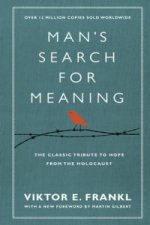
Man's Search For Meaning
16.28 € -23 % -
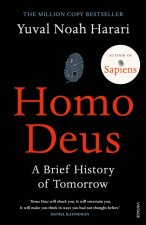
Homo Deus
12.06 € -23 % -
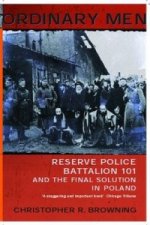
Ordinary Men
11.45 € -19 % -

Black Earth
13.36 € -19 % -

The Complete MAUS
18.69 € -13 % -

The Rape of Nanking
16.28 € -22 % -
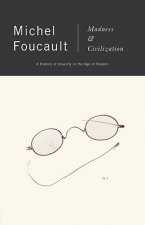
Madness and Civilization
17.59 € -8 % -
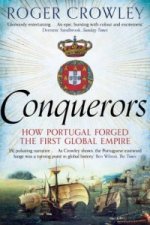
Conquerors
12.06 € -15 % -

Stoned
10.95 € -23 % -

Twelve Years a Slave
3.61 € -22 % -

At Home
12.06 € -22 % -
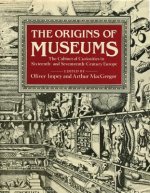
Origins of Museums
57.91 € -17 % -
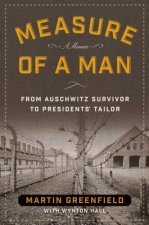
Measure of a Man
14.47 € -

Delirious New York
30.16 € -15 % -

Eichmann in Jerusalem
11.45 € -19 % -
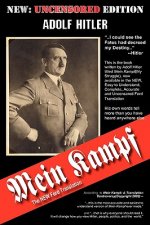
Mein Kampf - The Ford Translation
41.92 € -
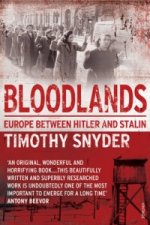
Bloodlands
13.36 € -19 % -

Guns, Germs and Steel
13.36 € -19 % -

Cold War Submarines
37.70 € -17 % -
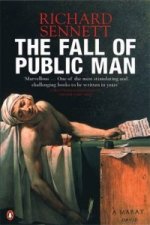
Fall of Public Man
16.28 € -23 % -
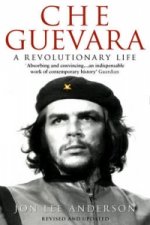
Che Guevara
24.43 € -13 % -

Dancing In The Streets
12.06 € -23 % -
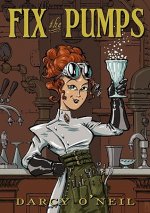
Fix the Pumps
15.17 € -15 % -

Blue
38.30 € -5 % -
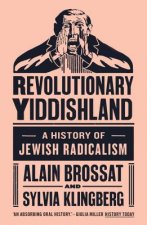
Revolutionary Yiddishland
13.26 € -15 % -

Commandant Of Auschwitz
12.06 € -22 % -
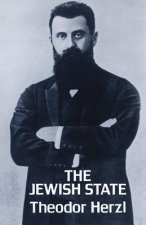
Jewish State
12.06 € -

Eichmann in Jerusalem
15.07 € -21 % -
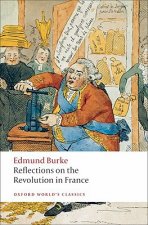
Reflections on the Revolution in France
9.95 € -22 % -
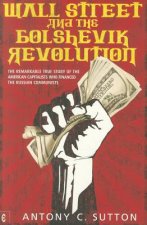
Wall Street and the Bolshevik Revolution
14.17 € -23 % -

Corgi Toys
17.08 € -5 % -
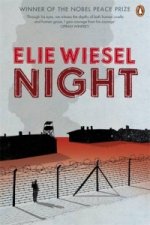
Night
10.95 € -23 % -
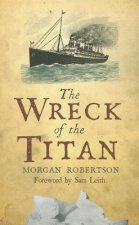
Wreck of the Titan
13.56 € -15 % -

McMafia
12.06 € -22 % -
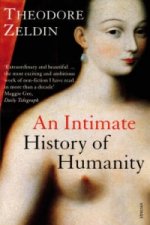
Intimate History of Humanity
14.17 € -23 % -
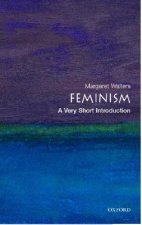
Feminism: A Very Short Introduction
9.95 € -22 % -
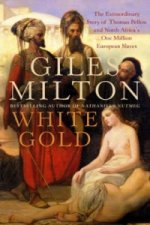
White Gold
14.17 € -23 % -
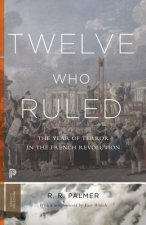
Twelve Who Ruled
25.23 € -9 %
Osobný odber Bratislava a 2642 dalších
Copyright ©2008-24 najlacnejsie-knihy.sk Všetky práva vyhradenéSúkromieCookies



 21 miliónov titulov
21 miliónov titulov Vrátenie do mesiaca
Vrátenie do mesiaca 02/210 210 99 (8-15.30h)
02/210 210 99 (8-15.30h)